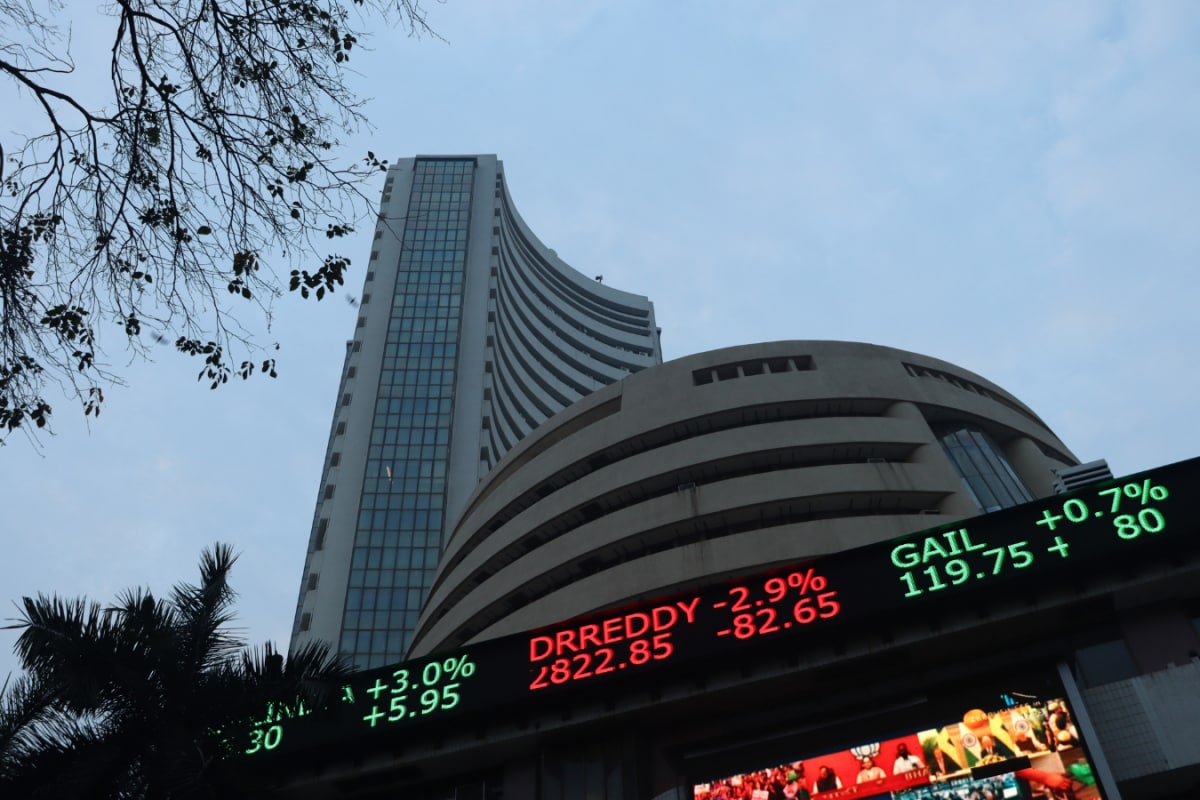

The Indian stock market experienced a downturn today, with both the Sensex and Nifty indices registering significant losses. The Sensex, the benchmark index of the Bombay Stock Exchange (BSE), closed down over 350 points, while the Nifty 50, the National Stock Exchange's (NSE) main index, fell below the 24,750 level. This decline reflects a broad-based sell-off driven by disappointing corporate earnings, continuous foreign investor outflows, and increasing global trade uncertainties.
Mirroring the overall market sentiment, shares of major IT companies, including Tata Consultancy Services (TCS) and Infosys, faced downward pressure. TCS shares fell by 1.5%, and Infosys experienced an even sharper decline of 2%. These losses in the IT sector contributed significantly to the overall negative performance of the market.
Market Performance and Key Drivers
On July 25, 2025, the Sensex concluded the day at 81,463.09 points, a decrease of 721.08 points or 0.88%. Similarly, the Nifty 50 settled at 24,837.00 points, down by 225.10 points or 0.90%. This marked the second consecutive session of losses for the Indian stock market.
Several factors contributed to this downturn. Mixed cues from global markets played a role, with Asian markets trading mixed and the U.S. stock market closing higher the previous week. Investors are also closely monitoring developments in the U.S.-India trade deal, the U.S. Federal Reserve meeting, auto sales data, IPO activity, Q1 results, and trends in crude oil prices.
IT Sector Under Pressure
The IT sector, a major component of the Indian stock market, faced significant headwinds. Infosys shares traded at ₹1,515.60, a decrease of 2.44%. Several analysts have provided recommendations for Infosys, with varied target prices and ratings.
TCS's stock price also reflected the negative sentiment, with the current price at ₹3,135.80, a decrease of 0.39% in the past 24 hours.
Global and Asian Market Influences
Asian markets exhibited mixed performance, with Japan's Nikkei 225 falling 0.52% and South Korea's Kospi dropping 0.11%. However, Hong Kong's Hang Seng Index futures indicated a stronger opening. Meanwhile, the U.S. stock market closed higher, driven by optimism surrounding the U.S.-European Union trade deal.
Expert Opinions and Market Outlook
Siddhartha Khemka, Head of Research at Motilal Oswal Financial Services Ltd., anticipates the market to remain in consolidation mode due to uncertainty around the India-U.S. trade deal, mixed Q1FY26 earnings, and persistent foreign institutional investor (FII) outflows.
The Gift Nifty was trading around 24,86 level, indicating a muted start for the Indian stock market indices.
Key Levels to Watch
According to Hrishikesh Yedve, AVP Technical and Derivative Research at Asit C. Mehta Investment Interrmediates, the Bank Nifty index's low of last week, near 56,200, will serve as crucial support. Until the index decisively crosses 57,320, traders are advised to book profits on bounces and await a clear breakout for fresh upside momentum.
In Conclusion
The Indian stock market is currently experiencing a period of volatility, influenced by a combination of domestic and global factors. While some analysts suggest a potential buying opportunity, caution is advised, and investors should closely monitor key market indicators and expert opinions to make informed decisions.